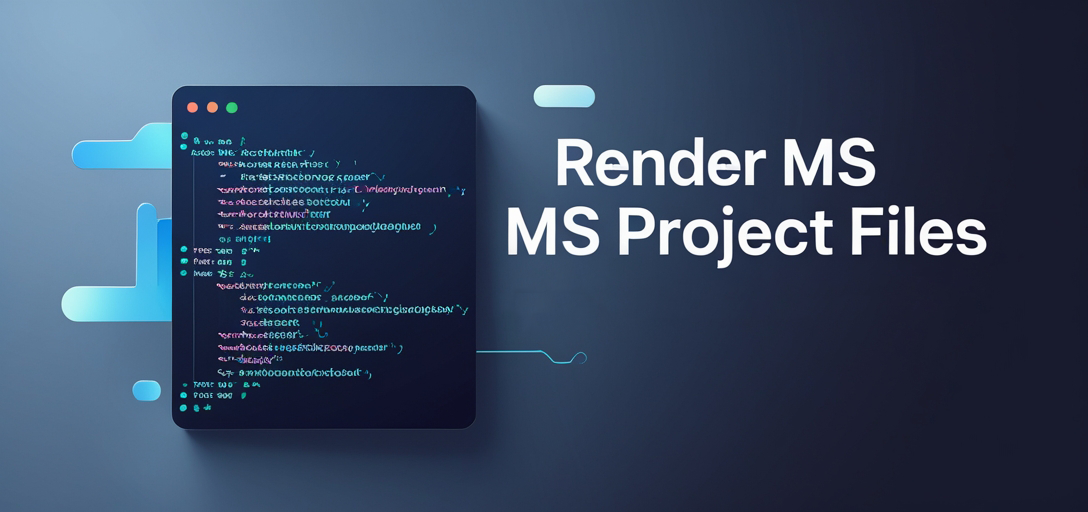How to Render MS Project Files as HTML, JPG, PNG, and PDF with Notes Using GroupDocs.Viewer for Java
Introduction
Working with Microsoft Project (MS Project) documents often requires sharing detailed project information, including notes, in accessible formats like HTML, JPG, PNG, or PDF. This guide will show you how to effortlessly render MS Project documents into these formats using GroupDocs.Viewer for Java. Whether you’re a developer looking to streamline your workflow or an organization aiming to enhance document accessibility, this tutorial will equip you with the necessary tools and knowledge.

What You’ll Learn:
- How to use GroupDocs.Viewer for Java to convert MS Project files.
- Steps to render documents into HTML, JPG, PNG, and PDF formats.
- Techniques to include notes in your rendered documents.
- Best practices for setup and optimization.
Now, let’s dive into the prerequisites needed before we begin implementing this solution.
Prerequisites
Before you start rendering MS Project documents with GroupDocs.Viewer for Java, ensure that you have:
- Java Development Kit (JDK): Version 8 or above installed on your system.
- Maven: A build automation tool required to manage project dependencies.
- Basic understanding of Maven and Java programming.
With these prerequisites in place, let’s move on to setting up GroupDocs.Viewer for Java.
Setting Up GroupDocs.Viewer for Java
To use GroupDocs.Viewer for Java, you need to add it as a dependency in your Maven project. This setup involves configuring the GroupDocs repository and specifying the version of the library you wish to use.
Maven Configuration:
Add the following snippets to your pom.xml file:
<repositories>
<repository>
<id>repository.groupdocs.com</id>
<name>GroupDocs Repository</name>
<url>https://releases.groupdocs.com/viewer/java/</url>
</repository>
</repositories>
<dependencies>
<dependency>
<groupId>com.groupdocs</groupId>
<artifactId>groupdocs-viewer</artifactId>
<version>25.2</version>
</dependency>
</dependencies>
This configuration allows Maven to fetch GroupDocs.Viewer from the specified repository.
License Acquisition:
You can start by obtaining a free trial or temporary license for full access to features without limitations. Visit the GroupDocs website to request your temporary license or purchase a subscription for ongoing use.
With the setup complete, you’re ready to begin implementing rendering of MS Project documents in various formats.
Implementation Guide
We will explore how to render MS Project documents into HTML, JPG, PNG, and PDF formats while including notes. Each section is dedicated to one format, detailing every step needed for successful implementation.
Render MS Project Document to HTML with Notes
Overview: This feature enables you to convert MS Project files into an easily shareable HTML format, complete with project notes.
Step-by-Step Implementation:
Set Up Paths: Replace
YOUR_DOCUMENT_DIRECTORYandYOUR_OUTPUT_DIRECTORYwith your actual file paths.Path YOUR_DOCUMENT_DIRECTORY = Path.of("YOUR_DOCUMENT_DIRECTORY"); Path outputDirectory = Path.of(YOUR_OUTPUT_DIRECTORY); Path pageFilePathFormat = outputDirectory.resolve("mpp_result.html");Initialize Viewer: Create a
Viewerobject for the MS Project file.try (Viewer viewer = new Viewer(YOUR_DOCUMENT_DIRECTORY.resolve("Sample_MPP.mpp"))) { // Proceed to rendering steps }Configure HTML Options: Use
HtmlViewOptionsto define how the document should be rendered, including notes.HtmlViewOptions options = HtmlViewOptions.forEmbeddedResources(pageFilePathFormat); options.setRenderNotes(true); // Include project notes in the outputRender Document: Execute the rendering process with the configured options.
viewer.view(options);
Troubleshooting Tips:
- Ensure file paths are correct and accessible.
- Verify that you have the necessary permissions to read/write files.
Render MS Project Document to JPG, PNG, and PDF with Notes
For each of these formats, follow a similar approach as outlined above. The key differences lie in using JpgViewOptions, PngViewOptions, or PdfViewOptions and setting appropriate file path formats for output files. For example:
- JPG: Use
pageFilePathFormat = outputDirectory.resolve("mpp_{0}_result.jpg"); - PNG: Use
pageFilePathFormat = outputDirectory.resolve("mpp_{0}_result.png"); - PDF: Use
pageFilePathFormat = outputDirectory.resolve("mpp_result.pdf");
For each format, ensure to set the render notes option as demonstrated.
Practical Applications
The ability to convert MS Project documents into various formats has numerous practical applications:
Collaboration: Share project plans and notes with stakeholders in a universally accessible format like HTML or PDF.
Documentation: Archive project details in image formats (JPG, PNG) for easy inclusion in reports.
Web Integration: Embed HTML representations of projects on websites to enhance interactivity and engagement.
Performance Considerations
To optimize performance when using GroupDocs.Viewer:
- Manage resources by closing the
Viewerobject promptly after use. - Monitor memory usage, especially with large documents or high-volume processing.
- Implement caching strategies for frequently accessed documents.
Following these guidelines ensures efficient and reliable document rendering.
Conclusion
By now, you should be well-equipped to render MS Project documents into HTML, JPG, PNG, and PDF formats using GroupDocs.Viewer for Java. This capability not only enhances accessibility but also streamlines project management workflows. As next steps, consider integrating this functionality into your existing systems or exploring further features of the GroupDocs.Viewer library.
FAQ Section
Q1: Can I render MS Project files without notes?
Yes, simply set options.setRenderNotes(false); to exclude notes from the output.
Q2: What is the maximum file size supported by GroupDocs.Viewer for Java? GroupDocs.Viewer can handle large files efficiently; however, performance may vary based on system resources and configuration.
Q3: How do I troubleshoot rendering issues with MS Project documents? Check your document path, ensure proper permissions, and review error logs for specific messages that might indicate the problem.
Q4: Can GroupDocs.Viewer render other types of project management files? GroupDocs.Viewer supports a wide range of file formats beyond MS Project, including Visio, Excel, Word, and more.
Q5: Is there support available if I encounter issues? Yes, you can access support through the GroupDocs Forum for any questions or troubleshooting needs.
Resources
- Documentation: Explore detailed guides at GroupDocs Viewer Documentation.
- API Reference: Access comprehensive API details at GroupDocs API Reference.
- Download and Purchase Links:
Embark on your journey to enhance document accessibility and shareability with GroupDocs.Viewer for Java today!